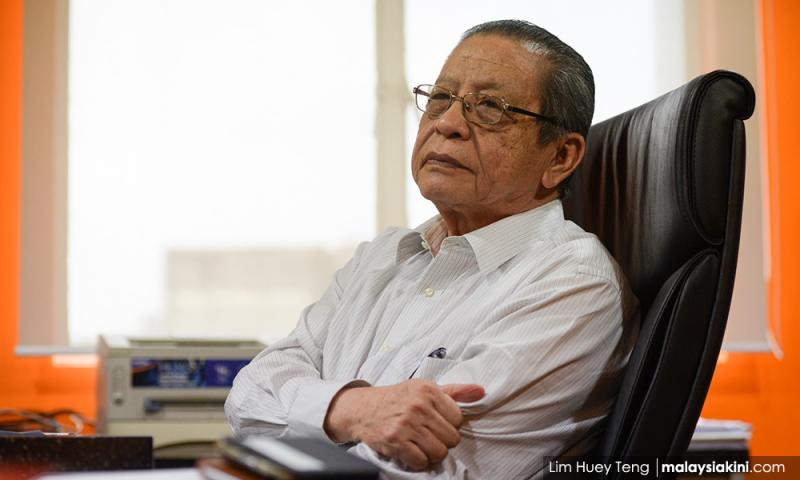
S Arutchelvan
COMMENT | I truly understand how disgruntled Lim Kit Siang is given the fact that Pakatan Harapan is doing badly in elections lately and very recently PH could not even make its mind on a common logo for the Johor State Election. While I understand his frustration - why bring up Venezuela as an example?
Is Lim singing to the tune of the US and its allies who have embargoed and sanctioned Venezuela as their democratic Government does not want to play ball with the US? Why did Lim use Venezuela as a bogeyman once again just like he did back in 2019?
Lim asserts that Venezuela was one of the richest countries in the world. Venezuela’s extreme dependence on oil income both brought great riches but made the country extremely vulnerable to the collapse of oil prices (like in the 1980s).
The oil boom in the 1950s and 1960s brought significant numbers of Venezuelans from rural areas to the nation’s capital (Caracas) but such urbanization resulted in a large growth of informal settlements in Caracas.
While such oil booms do translate to better wages, the reality of pre-Chavez Venezuela was unaddressed inequality. With the decline of oil prices in the 1980s, some members of lower-income communities had to resort to eating dog food to survive.
In 1989, Venezuelans forcefully attempted to implement neoliberalism and this resulted in a massacre that killed nearly 3000 Venezuelans under this supposed oasis of democracy in the 1980s.
Oil industry
One wonders about the illusion that Lim has about the richness of Venezuela. While the oil industry of Venezuela was nationalized in 1976, the oil industry was acting like a state within a state and the benefits of the industry did not spread to all communities of the country.
With the election of president Hugo Chavez in 1998, Chavez’s government asserted state authority on the Venezuelan oil industry. The revenues of the industry and efforts of Chavez’s government translated in enabling, empowering and enriching the people, by providing healthcare and education, supporting co-operative and workers’ movements, and strengthening Venezuelan cultural identity.
Venezuela had adopted a new constitution in 1999, and conducts elections electronically with strong safeguards against fraud and even have a provision for recall elections (the ability to recall elected leaders, including the President of the Country – Chavez was subject to such a recall in 2004).
The United Nations praised the reforms for bringing Venezuela out of poverty. At the same time, we need to acknowledge that Venezuela is enduring a severe economic crisis and the country does need to break out from the unhealthy dependency on oil.
The country has unaddressed high rates of crime, challenges in shifting to a more workers-controlled economy and high inflation rates.
Lim may need to explore the problems of other countries backed by United States such as Colombia – the deadliest country for trade unionists and workers and a country that is destabilizing Venezuela politically. Perhaps Lim Kit Siang should explain what he meant by Venezuela of Asean?
Humanitarian crisis
Lim’s argument that Venezuela today is facing a humanitarian crisis and with the state facing bankruptcy should be discussed in the right context. The humanitarian crisis is not due to corruption in the government but due to the US-imposed embargo.
They have also blocked Venezuelan money through dirty and inhumane tactics. Lim seems to be reading from the Washington Post rather than realising that the Venezuelan people have continuously given support for reforms and have elected the Socialist government for almost 2 decades now.
Lim is oblivious to the fact that Venezuela has been subjected to economic warfare for years where goods shortages and electricity disruptions are linked to the election period. Moreover, Venezuela has not broken out from a century-old economic dependency on oil. It is intellectual dishonesty to compare the Malaysian situation with Venezuela when the national circumstances are totally different.

Another point that Lim made was that China was once labelled as the "Sick Man of Asia" but again who made up these labels?. When China adopted the capitalist model, the sick man suddenly became a healthy man.
But now since China is becoming an economic powerhouse, they are now threatening the US economy once again. They will soon be labelled “terrorists” of the Pacific. Will Lim also parrot American propaganda then?
It is important that we make comparisons with other countries to put in context the situation in Malaysia, but biased comparisons based on the US imperialist worldview is problematic.
S ARUTCHELVAN is PSM deputy chairperson.
Arutchelvan and his and his Party's mentality are key reason why I will Never, Ever support PSM, even Michael Jeyakumar.
ReplyDeleteJust say u ONLY support demoNcratic infused parties in any outfit!
DeleteIts too simplistic of a view to see China as capitalist.
ReplyDeleteSocialism is briefly summarized as the collective ownership of the means of production. Having markets doesnt equate to non socialism or capitalism
In China, corporations and business owners, while being allowed a lot of freedom, are nevertheless still under the purview of the government
To simply label China as capitalist or attribute their meteroic rise to solely capitalism speaka volumes of the lack of understanding on many people's part
Hear… hear…
DeleteToo bad, there r too many western capitalistic minded know-nothings circling the demoNcratic bandwagon!